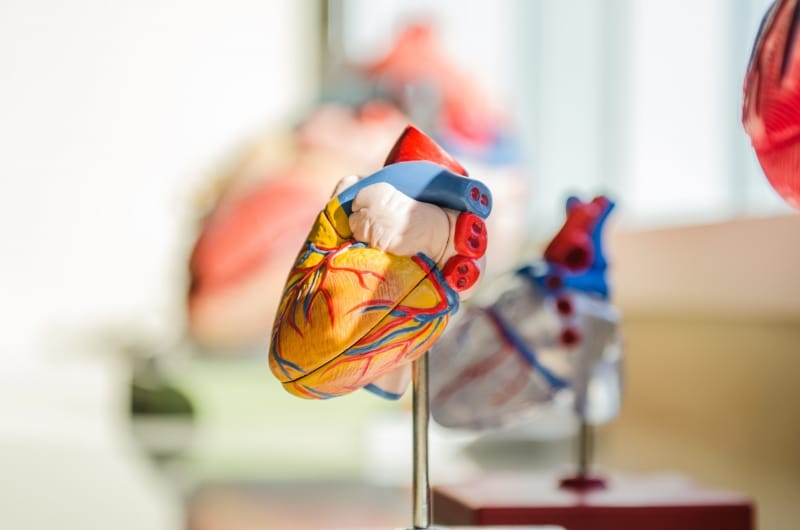It’s a fact that every person grows old and there’s nothing we can do about it. However, aging gracefully is something we can have a say in.
There are many dietary supplements on the market, such as collagen powder, multivitamins, and vitamin gummies, that can help with the aging process, and maintain our health.
Incorporating these dietary supplements into your everyday routine might prove difficult since there are days where you can just forget or simply don’t like them. Because, as you can imagine, they won’t taste as good as a cup of coffee in the morning.

So what if we tell you that there’s a way to make taking dietary supplements easy and make it part of your daily routine without much effort?
When you’re busy working, barely making time for a coffee break, it can be hard to try to remind yourself to take your vitamins on top of everything too. The perfect solution to this problem is right under our noses, literally.
Collagen coffee is the all-new hype in the coffee community and the beauty community too. Combining the world’s most beloved drink and dietary supplement isn’t something you should pass up. Try it first to see all the possible health benefits it provides before labeling it as another passing trend.
Contents
Collagen in All Its Glory

Let’s learn a bit more about collagen. As we all know, collagen is all everyone talks about when it comes to supplements to improve skin texture and skin elasticity. We, humans, are made up of collagen. It exists in our muscles, bones, skin, and even tendons.
Collagen is a protein that is insoluble, dense and makes up almost ⅓ of the body’s total protein content. It can be said that it’s the amplest protein in our body, made up of peptides which are also known as amino acids.
Our body is made up of about thirty different types of collagen protein, with the three most abundant being Type I, Type II, and Type III. Collagen each type serves a different purpose which are:
- The first one is Type I: it exists in the skin, tendons, and bones which also helps with the skin’s firmness.
- Secondly, Type II: it has in the cartilage which makes our joints move.
- The last one is Type III: it may have in the muscles, blood vessels, and skin which helps with the skin’s elasticity.
Why is Collagen Important?

The reason why people are talking about collagen protein powders instead of other protein powders is that it’s basically the glue that holds our bodies intact. The existence of collagen protein in our body is what helps our connective tissues mature and regrow.
Each year as we age, the amount of collagen reduces, and our body will also start to produce less of it too. And this is why skin wrinkles and sags over time, and why our joints start hurting the older we get. So the less collagen we have, the more problems our bodies will face. Daily habits such as excessive sun exposure and smoking will diminish collagen levels too.
People have been using diverse ways to increase their collagen peptides count. Products that help with collagen intake include skin creams, treatments, topical creams, soluble or hydrolyzed collagen, and even clothing. A well-known collagen-rich food is bone broth. Bone broth is a source of amino acids, helps with digestion, and might even help with insomnia.
5 facts about the Benefits of Putting Collagen in Your Coffee
1. Collagen for Skin Improvement

As our bodies start to lose collagen as we age, our skin’s moisture level, elasticity, and texture are all affected in a negative way. This is where collagen’s touted skincare benefits really come in handy. Symptoms of reduced levels of collagen include an increase in dryness, wrinkles, and fine lines.
Intake of collagen peptides and collagen supplements are recommended to combat the fall in collagen levels and support collagen growth. You can increase the collagen peptides in your body either through topical skin creams or oral ingestion of collagen supplements. With this being said, the more collagen molecules you have, the higher the chance of alleviating the symptoms.
2. Collagen to Help With Joint Pain

Just like stated above, collagen also makes up the bones in the body. This abundant protein helps our cartilages move smoothly. So if collagen falls in amounts every year, the structure of the cartilage in the body will also change.
Collagen supplements have been shown to be beneficial in trials centering on arthritis and wound healing. Arthritis, a disorder characterized by joint inflammation, can result in joint pain in certain people.
Collagen supplementation has been proven in several studies to help relieve arthritis-related joint discomfort since collagen taken orally is effective at reducing the chemicals that can cause inflammation and disease. As a result, if you have joint pain, collagen protein supplementation may help.
3. Collagen Preventing Bone Loss Due to Aging

The dense bone in your body contains collagen, mainly collagen type I. And as the production of collagen falls with age, the bone masses slowly but steadily begin to decrease which can lead to potential diseases of the bone.
One of the most common bone diseases that may occur due to loss of collagen is osteoporosis, a condition where bones become weak and thin and are more prone to fractures or breaks.
Collagen supplements may help reduce bone disintegration and disorders related to it, according to some research. Collagen protein powders, in combination with proper calcium, vitamin D, and phosphorus intake, may be a smart investment to help preserve bone mass if you have decreased bone mineral density.
4. Collagen to Support the Heart

Many research has shown most collagen supplements provide many desired health benefits, but the help in lessening the risk of heart-related diseases isn’t one that is well-known by most people. Collagen forms part of the connective tissues in your arteries, and without adequate collagen, they might weaken over time.
Arteries are the blood vessels that distribute blood from the heart to other parts of the body. This could result in atherosclerosis, a disease characterized by artery narrowing. Atherosclerosis increases the risk of heart attack and stroke.
Thirty-one healthy adults had all been given 16 grams of collagen daily for six months in one study. They had a considerable reduction in measures of arterial stiffness by the end of the study, compared to before they started taking the supplement.
Even though more research into the impact of collagen supplements on heart health is required, there is no loss in consuming collagen-based products to alleviate symptoms and minimize the risk factors connected with heart diseases.
5. Collagen to increase muscles mass

The muscle tissues in the body have a major component, collagen. It makes up around 10 percent of the muscle connective tissues, and its presence is important for the muscles to remain strong and functional.
Collagen may enhance the synthesis of muscle proteins like creatine, as well as drive muscular growth following exercise, according to research.
Collagen supplements have been shown in studies to benefit persons with sarcopenia or the loss of muscle mass that occurs as people age.
In one study, 27 frail men received 15 grams of collagen daily for 12 weeks while participating in an activity program. Men who exercised and consumed collagen gained much more muscle mass and strength than men who did not exercise but did not take collagen.
The World of Collagen Supplements

There are many types of collagen that you can get on the market today. Each type of collagen supplement derives from many different sources such as animals or marine sources. Collagen levels can be increased by consuming collagen-rich foods, but sometimes they might not be enough.
Thanks to technology, buying collagen off of store shelves is easy and simple. The option for vegan collagen supplements is also available, and they’re made out of yeast and bacteria that have been genetically engineered.
The supplements available mostly type I collagen and are soluble or hydrolyzed collagen. The complex triple helix shapes of collagen are broken down into hydrolyzed collagen peptides which will be easier for the body to absorb into the tissues.
Will Collagen Ruin the Taste of Coffee?
Most collagen supplements are dissolved in powder or liquid form, and in flavored or unflavored varieties. Many people prefer the unflavored kind because it may be used in a variety of dishes and beverages without ruining the taste.
Adding Collagen to Your Daily Cup of Joe
If you’re still skeptical about collagen having a weird taste, then putting collagen in your coffee will be the best thing to try in order to enhance your daily collagen growth. Unflavored collagen powder can be conveniently added to coffee without changing its taste. Though, there have been claims of hot coffee ruining the collagen powder before it even gets absorbed by the body.
Collagen vs. Heat

The debate of heat destroying the desired health benefits that collagen provides has been going on for a long time.
Collagen is often produced by exposing animal hides to an acidic or alkaline solution. The hides are then boiled in water at temperatures as high as 190ºF or 88ºC to continue the collagen protein extraction.
Proteins denature when exposed to high temperatures or acidic and alkaline solutions, slightly modifying their structure. Meaning that store-bought collagen supplements are denatured, or to put it in a way that is easier to understand, it means that they are partially digested, which aids absorption in the digestive tract.
However, if this abundant protein is exposed to higher temperatures, degradation will occur. This process will ruin the collagen’s molecular structure causing it to lose its functions and benefits.
A study was conducted to see the temperature where collagen’s molecular structure melts, and the results showed that they start to degrade at 302ºF or 150ºC. However, coffee is usually brewed around 205ºF or 96ºC. So the collagen’s molecular structure, the triple helix shape, won’t break down in a hot liquid below 302ºF or 150ºC.
So the heat won’t be a big obstacle in adding collagen to your coffee. And if you are still worried about the diminishing effects of heat on collagen powder or liquid, you just add the collagen in when the coffee cools down a bit.
Best way to Add Collagen to Coffee

If you ask about the best way to add collagen to coffee whether its collagen powder or liquid collagen, directly stirring it in would be the answer, plain and simple. Collagen quickly dissolves in hot water, tea, and coffee. Add a scoop of 15 to 20 grams of collagen powder, stir until well dissolved, and your collagen coffee is done.
Start your day with a boost of confidence knowing that you’re starting your journey to a healthier life thanks to nutritional proteins and amino acids.
Evaluate Collagen Supplements and Their Potential Side Effects
Using collagen supplements is associated with very few known risks. But a common health hazard might be from where the collagen was obtained. People with seafood allergies need to stay away from supplements made from marine sources such as fish in order to avoid an allergic reaction. In any case, these supplements appear to be safe for the vast majority of people.
Incorporating Skin or Hair Boost into Your Diet
All in all, collagen has a lot of health benefits and only a few identified concerns. Collagen supplements are said to benefit the brain, heart, and digestive tract health, as well as weight management and maintaining healthy hair and nails. Supplements may improve skin health by reducing wrinkles and dryness. They may also help increase muscle mass, prevent bone loss, and improve joint health.
Collagen supplements are generally safe, straightforward to use, and well worth testing for their potential advantages. And remember that less collagen means more problems.
References
- Should You Add Collagen to Your Coffee? | Healthline | Daniel Preiato
- Top 6 Benefits of Taking Collagen Supplements | Healthline | Brianna Elliott
- Collagen Coffee Recipe (3 ways to boost your Cup of Joe) | CB Supplements | Christen Rodgers
Check out: How to Make Collagen Coffee By Mark’s Daily Apple
